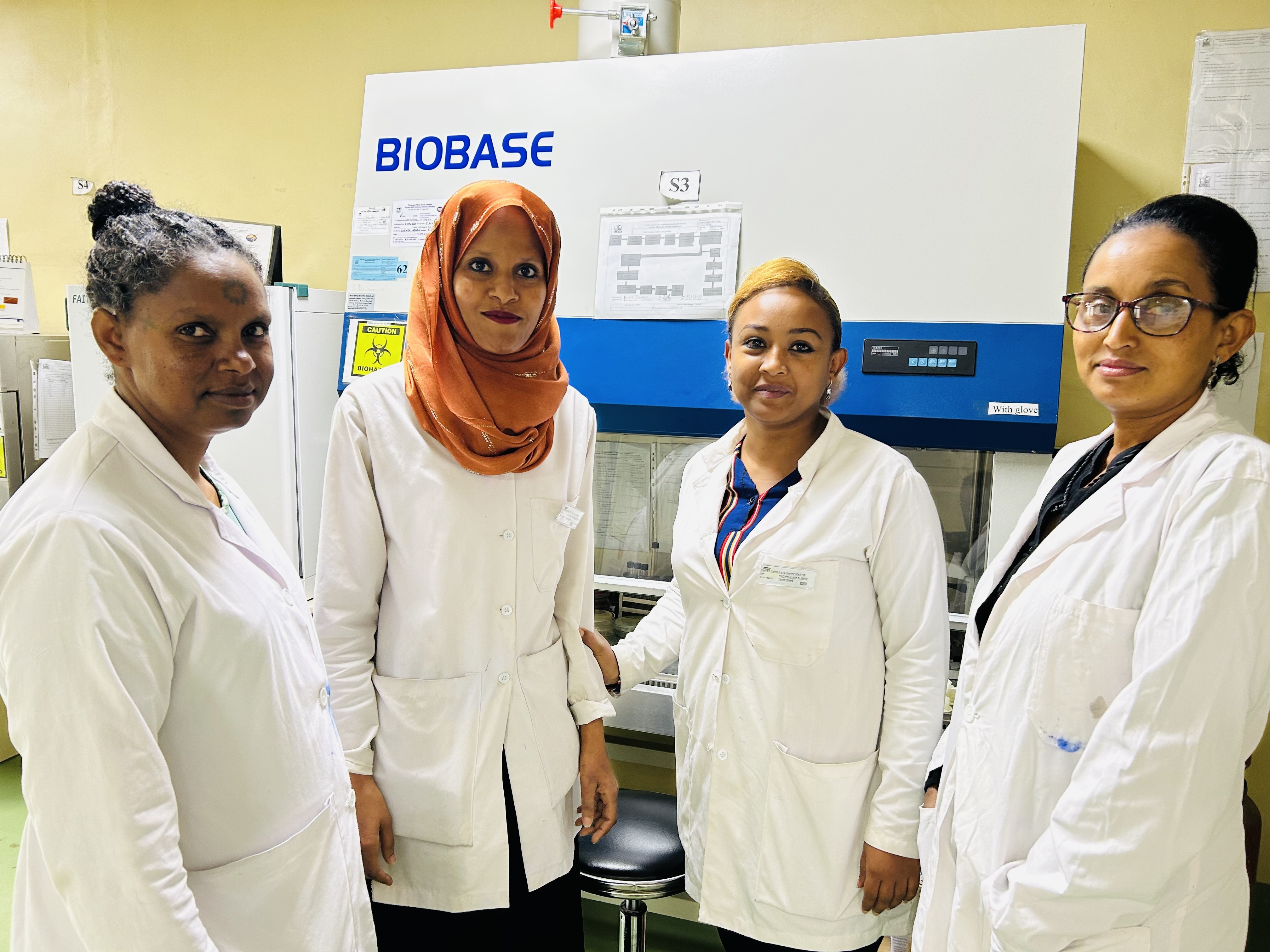Over the past three years, the Ohio State Global One Health LLC (GOHi), in partnership with Ethiopia’s Tikur Anbessa Specialized Hospital (TASH), Zewditu Memorial Hospital (ZMH), and the U.S. Centers for Disease Control and Prevention (CDC), has led a transformative initiative under the Global Action in Healthcare Network (GAIHN). This integrated laboratory and infection prevention and control (IPC) program has significantly strengthened Ethiopia's antimicrobial resistance (AMR) surveillance and healthcare infrastructure.
Transformative Facility-Level Outcomes
The program has served as a critical turning point in raising awareness of AMR and IPC practices. Leadership across both hospitals observed a shift in staff behavior and heightened compliance with IPC protocols, particularly in high-risk units such as the Adult and Neonatal Intensive Care Units. Daily practices now align with international standards, including contact precautions for patients colonized with multidrug-resistant organisms (MDROs). This has tangibly improved patient care and reduced healthcare-associated infections (HAIs) and mortality rates.
Strengthening Microbiology and Lab Services
GOHi’s targeted lab support—ranging from technical training and essential supplies to skilled personnel—enhanced diagnostic capabilities and expanded antimicrobial susceptibility testing (AST). Labs adopted global best practices like dual-bottle blood cultures, isolate storage at -20°C, and the use of dedicated incubators, sharply reducing specimen contamination rates (e.g., from 37% to 15% at ZMH). Enhanced lab reliability has improved clinician trust and increased sample submissions dramatically: from 93 to 1,880 at TASH and 585 to 986 at ZMH.
Both hospital labs achieved ISO accreditation—a milestone that not only validated their operational quality but also positioned them for future research and national benchmarking.
Cultural and Clinical Shifts
Staff at all levels now demonstrate a deeper understanding of AMR threats. Health professionals actively seek safer work environments and are increasingly dependent on accurate lab diagnostics to guide antimicrobial prescribing. IPC has evolved from a compliance requirement to a shared value within hospital culture.
National-Level Influence
GOHi’s work is influencing AMR strategies beyond the pilot facilities. Contributions to Ethiopia’s national surveillance program have increased in both volume and quality, with TASH emerging as the top contributor. Innovative interventions such as colonization screening and transmission-based precautions—introduced for the first time in Ethiopia—are now serving as models for nationwide implementation in resource-limited healthcare systems.
GOHi’s AMR project stands as a scalable, evidence-driven model for enhancing IPC and microbiology services in low-resource settings. Its success demonstrates the powerful impact of integrated international partnerships on national health priorities and global health security.
